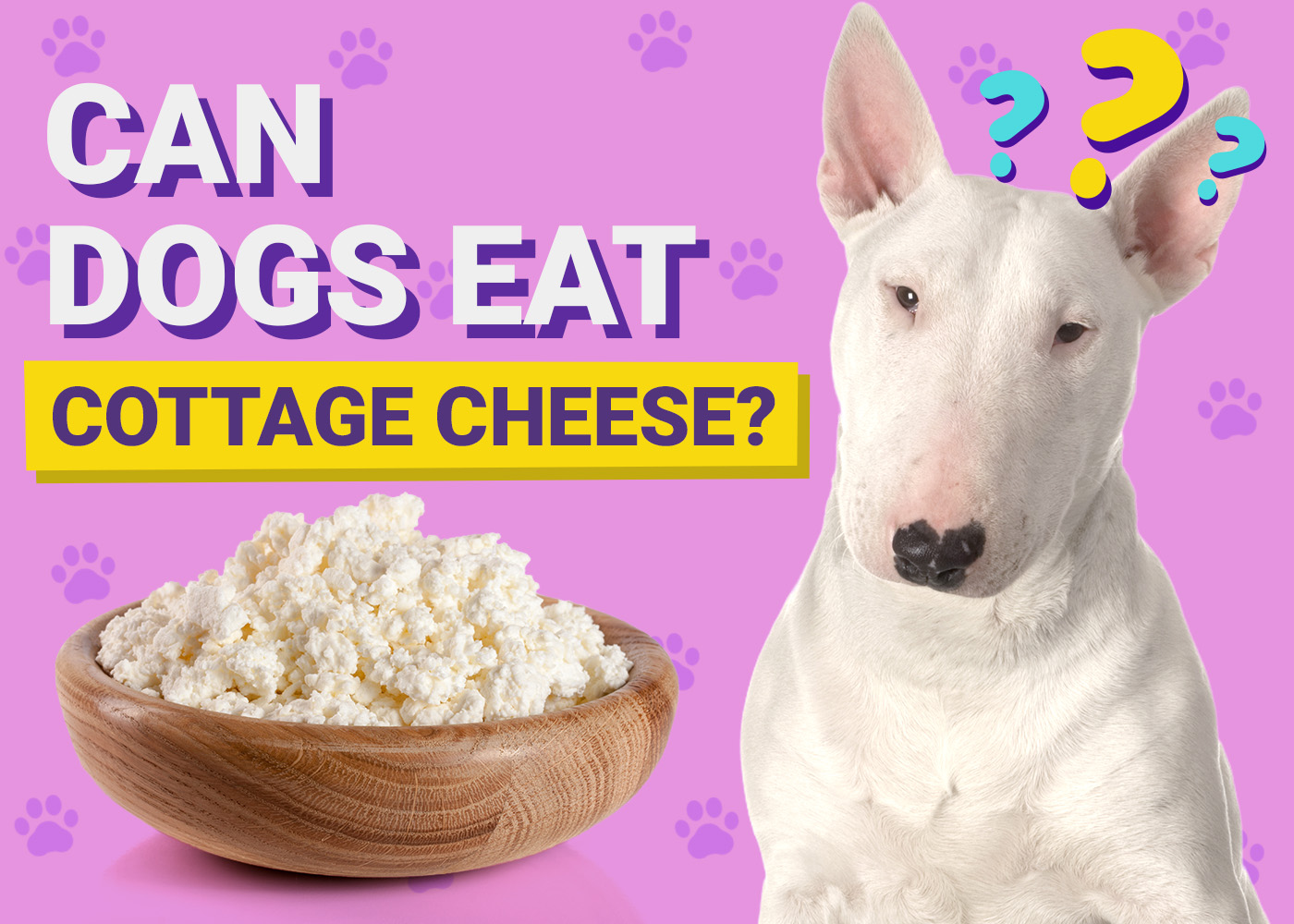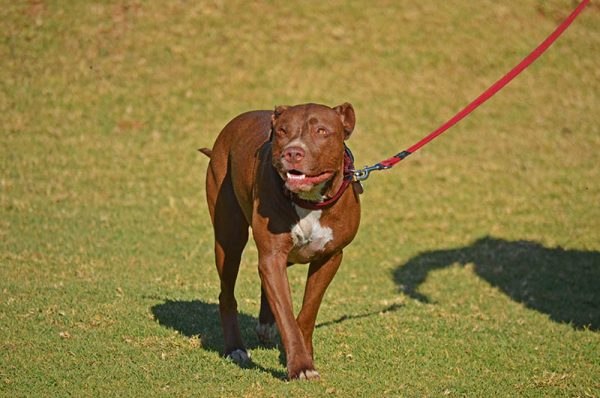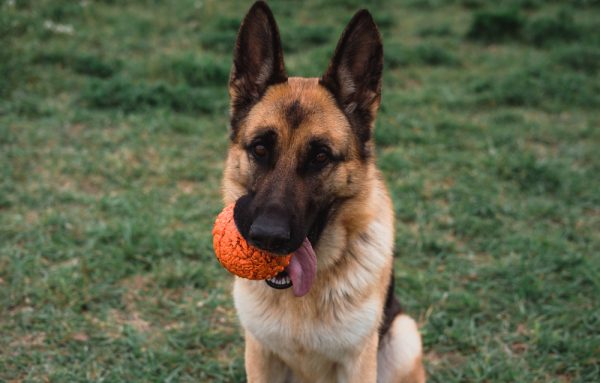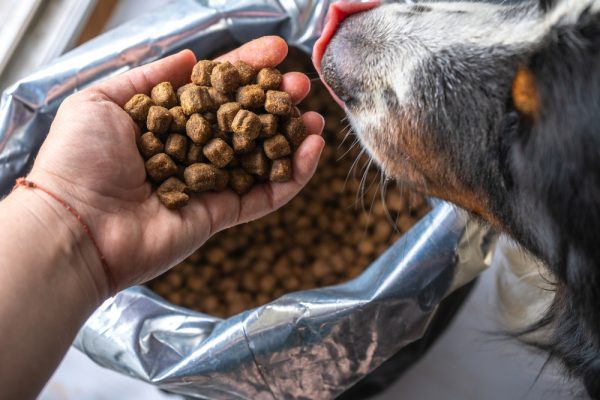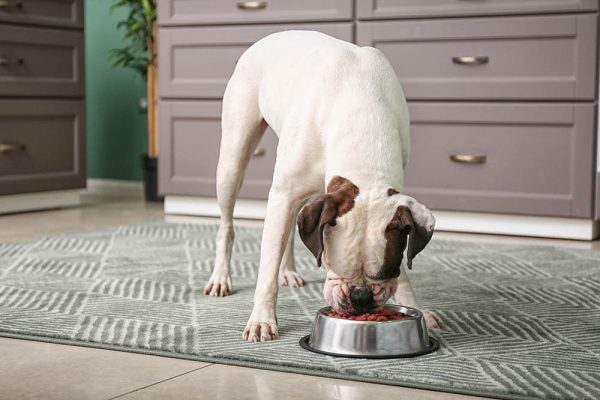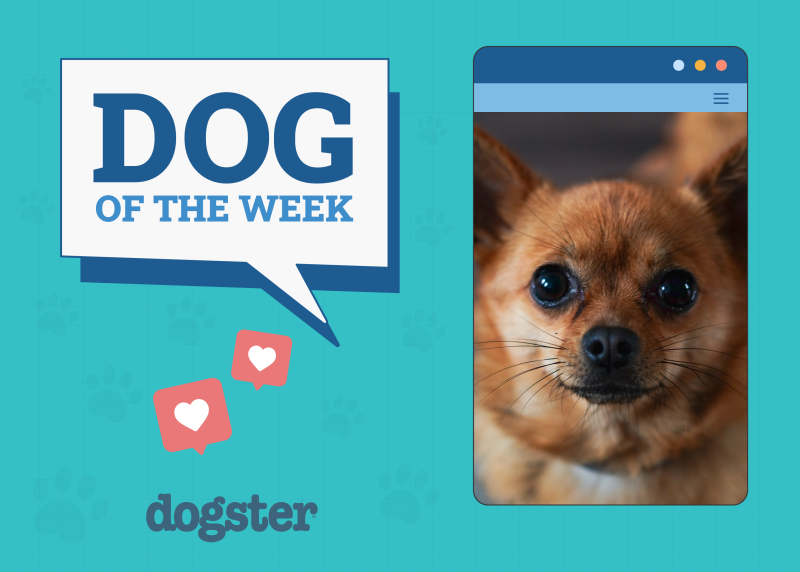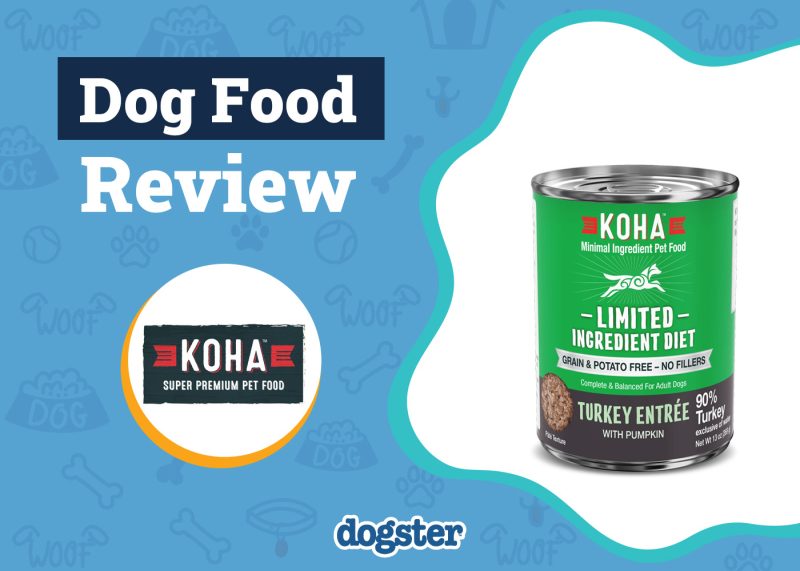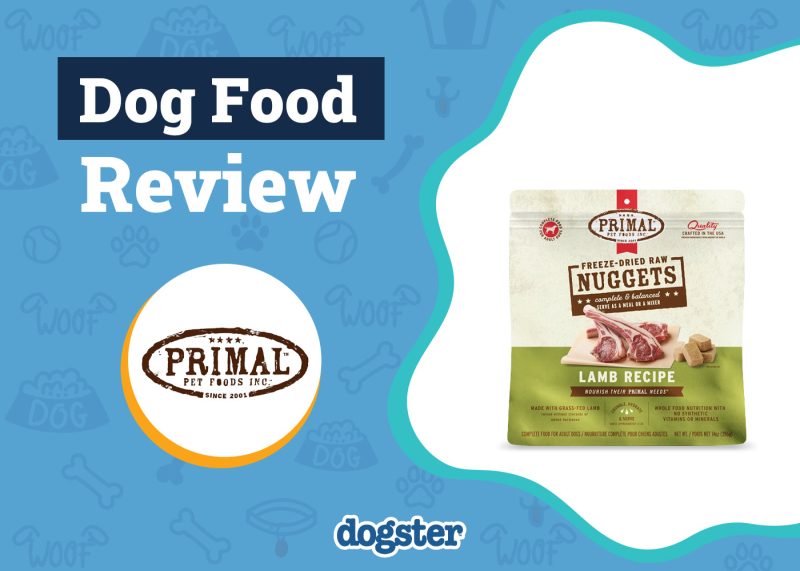Most dogs are far from discerning when it comes to what they put in their mouths. They have no problem getting into the garbage and eating scraps, and they don’t mind devouring whatever they can find on the ground when in public settings. So, it’s our job as dog owners to make sure our pets stay away from dangerous foods while providing them with all the nutrients that they need for good health as time goes on.
While we can share certain foods with our dogs, not everything in the kitchen is safe for them. One thing that you might wonder about is cottage cheese. Can you share some with your dog? The short answer is yes! Dogs can enjoy a small amount of cottage cheese as a snack. Here’s what you should know!
Disclaimer: Before changing your dog’s diet or introducing new ingredients or supplements that they haven’t eaten before, especially when it comes to human food, make sure to consult your veterinarian first. Every dog is different and requires an individual approach to nutrition, depending on their age, health, level of activity, and medical history. The guidelines offered in our article have been fact-checked and approved by a veterinarian but should be used as a mere guide on food safety, rather than an individual nutrition plan.

Is Cottage Cheese Healthy for Dogs?
Cottage cheese can be a healthy addition to your dog’s diet, but only occasionally. This type of cheese is lower in fat than many other kinds of cheeses and contains some beneficial nutrients but should not be a part of their regular diet. Dogs get all the essential vitamins and minerals from their balanced and complete formulated diet. Cottage cheese may provide a tasty snack for some dogs every now and then, but it cannot in any way replace their diet or be the main source of nutrients for them. Plus, it contains lactose, which many dogs are intolerant of.
Anecdotal and evidence-based health benefits of cottage cheese are extrapolated from human medicine, and due to the small amount most dogs can safely consume, they will not reap any health benefits.
Here are the main nutritional benefits of cottage cheese in people:
| Calcium | Supports healthy bone growth and maintenance. Helps optimize dental health. |
| Vitamin A | Supports good vision, healthy reproduction, and an effective immune system. |
| Essential Fatty Acids | Provides energy, reduces inflammation, and promotes healthy overall growth. |
| Vitamin B12 | Plays an important role in carbohydrate metabolism. Supports nervous system functionality. |
| Magnesium | Supports strong bones. Promotes muscle relaxation. Plays a role in blood clotting. |
Keep in mind that your dog should enjoy cottage cheese as an occasional snack only, not as a regular part of their diet!
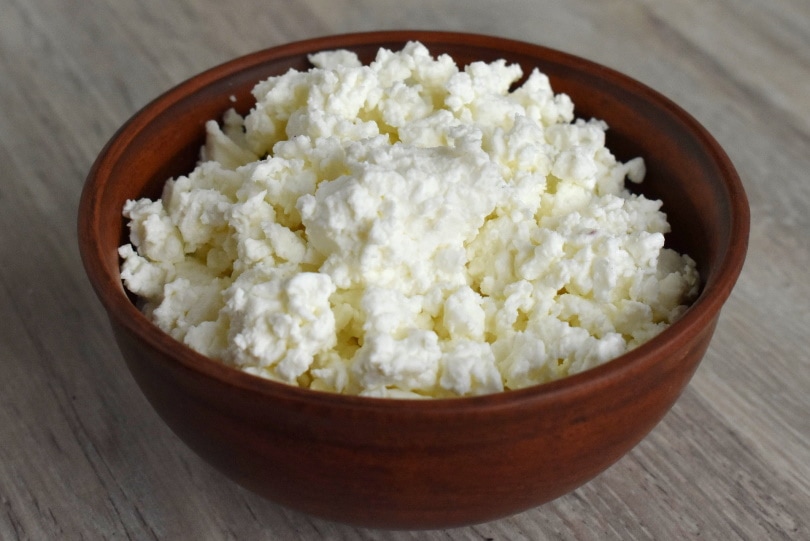
What Are the Concerns About Feeding Cottage Cheese to Dogs?
Many dogs are lactose intolerant, which is considered a type of carbohydrate reaction. If a dog with lactose intolerance eats cottage cheese—or any other dairy product, for that matter—certain clinical signs can develop, including bloating, diarrhea, and gastrointestinal discomfort.
Even dogs that are not considered lactose intolerant can experience digestive upset if they eat too much cottage cheese. Occasionally giving your dog a bite or two of cottage cheese along with their meal or as a snack every once in a while should help keep them from experiencing any negative side effects.
Another thing to keep in mind is weight. Although cottage cheese is lower in fat than other types of cheese, it is still higher in fat than a dog’s regular food (or it should be, at least). Giving cottage cheese to your dog on a regular basis can result in unwanted weight gain, which can lead to many health problems.
Finally, certain brands of cottage cheese are mixed with things like onions and garlic, which are poisonous to dogs. Therefore, make sure any cottage cheese that you feed your dog has nothing else in it, unless you mix something that you know is safe into it yourself.
If you need to speak with a vet but can't get to one, head over to PangoVet. It's our online service where you can talk to a vet online and get the advice you need for your pet — all at an affordable price!
How Should Cottage Cheese Be Fed to Dogs?
Always choose plain cottage cheese if feeding it to your dog. Any extras should be added by you and be dog-safe; examples include peanut butter, oatmeal, and dog food. There is no need to specially prepare the cottage cheese before consumption. Just offer 1 or 2 tablespoons at a time, depending on the size of your dog, as this will minimize the risk of gastrointestinal distress.

Summing Up
Many dogs enjoy the taste and texture of cottage cheese, and they can have a small amount occasionally as a treat. Just keep the concerns in mind when deciding how often and how much cottage cheese your dog can be safely offered as time goes on. If you’re in doubt, consult your veterinarian for guidance. If your dog experiences a stomach upset, they are likely intolerant of lactose and should not have any dairy products.
See also:
- Can Dogs Eat Cornmeal? Vet Approved Facts
- Can Dogs Eat Cheesecake? Vet Approved Facts & Safety Guide
Featured Image Credit: Lazartivan, Shutterstock
